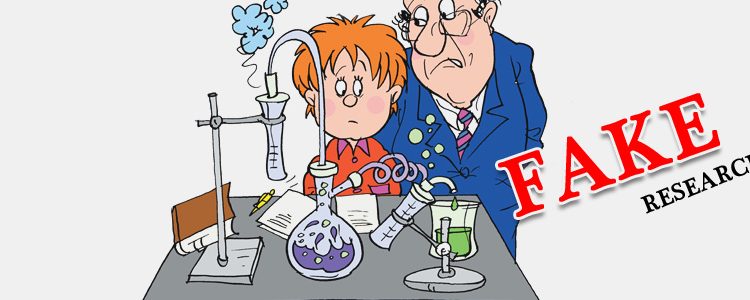UK Research Under Scrutiny

Academic research is a partnership between scientists, funding bodies, and the government. Eventually, research findings may be used to form public policy or be translated into products which the everyday consumer may choose to use. Fake research is particularly problematic when it is applied in ways that directly affect the general public as there can be real life consequences to using falsified data as the basis for policy, medical treatment, or applied technology. It is therefore of paramount importance that research integrity is maintained. It is also critical that scientists are trained to hold the trustworthiness of data that they put in the public domain as much more important that falling in line with the “publish or perish” mantra of academia.
A recent BBC report suggests that the amount of fake research emanating from the United Kingdom has been significantly underestimated and the House of Commons Science and Technology Committee have begun an inquiry into this problem. Stephen Metcalfe, who chairs the committee, stated that the purpose of the inquiry is to determine the robustness of the systems that exist to ensure that research is ethical, accurate, and reproducible. He stated that fraudulent research findings breed mistrust.
Officially, there have been about 30 allegations of research misconduct between 2012 and 2015 in the UK. However, the BBC investigation found approximately 300 allegations of research misconduct occurring between 2011 and 2016 at the research-intensive Russell Group universities. Of these, 103 were found to actually involve violations of research integrity, 173 cases were dismissed, and 43 investigations are still ongoing. As a result of this body of fake research, at least 32 research papers have been retracted along with 3 PhD theses. Instances of research misconduct in the 103 cases mentioned included falsifying results, claiming that the research of others was actually one’s own, and publishing data in a paper without duly acknowledging the source.
As Mr. Metcalfe said, these levels of misconduct do not inspire public confidence in UK science. Acknowledging the importance of research integrity, UK universities proposed and became signatories to a concordat. The document is not intended to reinvent the wheel; rather it was designed to complement existing mechanisms in the UK to promote research integrity while respecting the autonomy of researchers’ employers. The concordat emphasizes the importance of all research
- being built on pillars of integrity and rigor
- conforming to all the ethical, legal, and professional obligations applicable in a given field
- being done in an environment that supports the highest standards of integrity and rigor
- being done in an environment with transparent processes to investigate allegations of research misconduct
- being done within an infrastructure that continuously monitors and improves its mechanisms which ensure research integrity.
The pressure to publish or perish may be part of the reason behind the rise in levels of research misconduct in the UK. Publications are a part of the academic process that is used to determine if a researcher is competitive in a round of grant funding or before a promotions committee. This may result in a researcher compromising their integrity to get ahead in their field. The implementation of the principles outlined in the concordat may be able to curb this trend by supporting research that values integrity above all else and making it clear that research misconduct will be uncovered and will not be tolerated.









